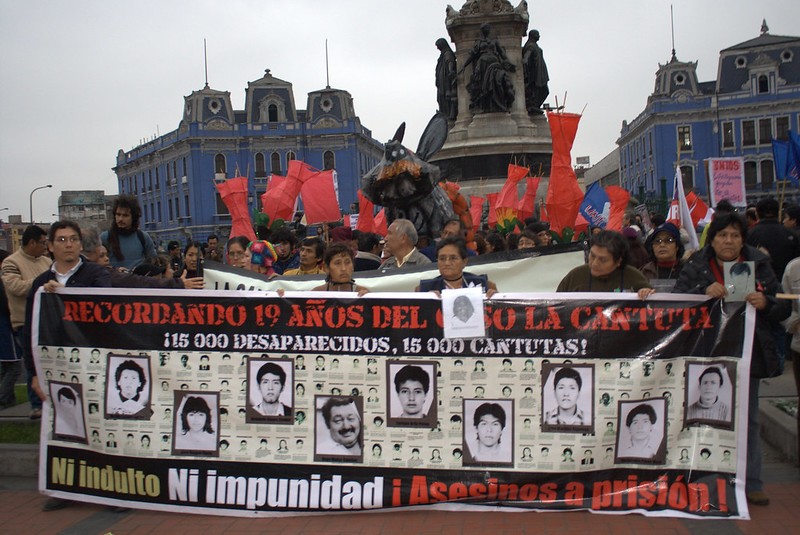The Peruvian Constitutional Court reinstated last week a humanitarian pardon granted in 2017 by former President Pedro Pablo Kuczynski due to Fujimori’s serious health issues.
In 2018, the pardon was revoked due to irregularities; however, in March 2022, the Constitutional Court annulled the sentence and ordered Fujimori's release.
Back then the Inter-American Court of Human Rights accused the Peruvian judges of not having followed international standards and asked the country to "refrain from applying the sentence of the Constitutional Court."
However, Peru reaffirmed its decision and released Fujimori last week.
The former president's sons, Keiko Fujimori and Kenji Fujimori, both politicians themselves, thanked ex-President Pedro Pablo Kuczynski for pardoning their father, who appeared in a video next to them and his lawyer as he was released from Barbadillo prison.
International organizations such as the United Nations and Human Rights Watch declared his release a violation of international law. The humanitarian pardon initiative appeared as a strategy to win the votes of Fujimori's supporters in Congress and block the impeachment proceedings already pending against former Peruvian President Pedro Pablo Kuczynski back in 2017, the human rights watchdog said.
Alberto Fujimori was sentenced to 25 years in prison in 2009 for his involvement in two massacres carried out by the paramilitary group Colina in 1991 and 1992, as well as enforced disappearances and abductions.
In these massacres, 15 inhabitants of a neighborhood in the Peruvian capital were murdered because they were accused of having links with the Maoist guerrilla group Shining Path, which was never proven. Nine students and a professor from La Cantuta University were also killed.
Americas Director at Human Rights Watch, Juanita Goebertus, said that “Fujimori’s release is a slap in the face to victims of atrocities,” and that the Organization of American States “should examine the release in the context of very serious erosion of the rule of law and the protection of human rights in Peru.”



